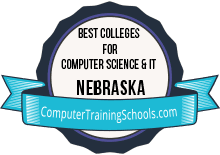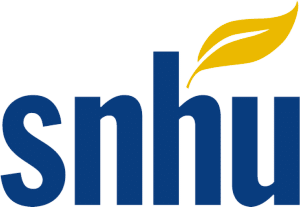Nebraska’s two largest cities, Omaha and Lincoln, were named in an April 2019 MarketWatch report as “hot spots” for tech industry growth, based on their supportive business environments, network of venture capitalists, and active startup scenes. And given that Nebraska’s government leaders have designated IT and data services as a targeted industry for growth, other cities like Kearney may also provide work opportunities for future grads of IT degree programs.
Overall, according to CompTIA, approximately 65,000 tech workers were employed in Nebraska in 2018 — a two percent increase over the previous year.
Nebraska’s Technology Education Initiatives
The Cornhusker State, part of the Silicon Prairie, has implemented several initiatives to promote and grow its IT sector. These include finding ways to encourage more students to aim for degrees in technology fields — degrees that can be earned at computer science schools in Nebraska. Here’s a closer look at a few of them:
- Improving technology education: The Education Council of the Nebraska Information Technology Commission is a 16-member advisory committee of representatives from K-12 and postsecondary education. It offers a public forum for the exchange of education technology issues and ideas among public and private higher education entities.
- Providing technology to rural Nebraska: The Nebraska Information Technology Commission strives to give those in rural Nebraska better broadband availability so they can use technology in their everyday lives. It also hopes to promote tech careers to Nebraskans who live in unserved and underserved areas of the state.
- Encouraging women to pursue IT careers: The University of Nebraska hosts a Women Advance IT conference every year. This two-day conference, open to the public, focuses on growing future IT leaders and adding more women to the industry.
- Building technical and business skills in students: High school scholars can apply for an interdisciplinary residential program at the Jeffrey S. Raikes School of Computer Science and Management at the University of Nebraska’s Omaha campus. This program provides students with a jump start on their careers via internships, scholarships, and networking opportunities. Its mission is to encourage them to pursue IT degree programs in Nebraska.
Southern New Hampshire University
- Some of the nation’s most affordable tuition rates, from a private, nonprofit, NEASC accredited university
- Qualified students with 2.5 GPA and up may receive up to $20K in grants & scholarships
- Multiple term start dates throughout the year. 24/7 online classroom access
- Offering over 200 online degree programs
Purdue University Global
- Experience world-class education online with more than 175 programs at associate’s, bachelor’s, master’s and doctoral levels.
- Apply eligible work experience and prior college credits toward up to 75% of your undergraduate degree.
- You have the option of trying out a Purdue Global undergraduate program for an introductory 3-week period. There’s no cost beyond the application fee.
- Competency-based ExcelTrack™ programs may allow you to earn your degree faster and for less money
Best Computer Science and IT Colleges in Nebraska

Whether you’re looking to start a tech career, move up the career ladder, or change careers, more than a dozen colleges and universities in Nebraska offer either associate, bachelor’s or advanced degree programs in a computer science or IT-related field. Our analysis of data from the National Center for Education Statistics shows that these are the best schools for computer science programs in Nebraska.
| Ranking | School Name | In State Avg. Undergrad Tuition | % Receiving Financial Aid | Retention Rate |
|---|---|---|---|---|
| 1 | Creighton University | $38,200 | 100% | 89% |
| 2 | University of Nebraska at Omaha | $6,082 | 87% | 75% |
| 3 | Northeast Community College | $2,880 | 89% | 67% |
| 4 | College of Saint Mary | $20,350 | 97% | 76% |
| 5 | Concordia University-Nebraska | $31,620 | 100% | 78% |
| 6 | Hastings College | $28,600 | 100% | 66% |
| 7 | Doane University-Arts & Sciences | $33,000 | 100% | 71% |
| 8 | Bellevue University | $7,152 | 89% | 77% |
Spotlight on Computer Sciences Schools in Nebraska
Computer science degree programs in Nebraska can be found throughout the state, including online IT programs. Here are a few schools with noteworthy offerings:
- University of Nebraska-Lincoln: At Nebraska’s Raikes School, students can enroll in a Bachelor of Science in Computer Science and specialize in artificial intelligence, foundations, informatics, or networking and high-end computing. They can also participate in extracurricular activities like the Game Development Club or Initialize, a group that use computing skills to help the larger Lincoln community.
- Wayne State College: WSC offers a programmer/analyst degree program for students who are interested in becoming computer programmers, software developers, IT administrators, and systems analysts. They can pair their degree with a minor in business administration, computer science, or geospatial technology.
- Doane University: Doane’s flexible computer science program gives students the chance to tailor their experience to their particular talents and interests. They can major in computer science or information systems and focus in software development or information technology. In addition, students can enter a mentoring relationship with computer science alumni and complete a technology-related community service project during their sophomore year.
- Northeast Community College: Students who earn a two-year associate degree in computer science or computer information systems at NCC can take advantage of the school’s articulation agreement with Wayne State College. Credits earned through the associate program are designed to fulfill the requirements for the first two years of WSC’s bachelor’s degree programs in those fields.
IT Salaries and Career Outlook in Nebraska
The Bureau of Labor Statistics predicts double-digit demand through 2026 for software developers, computer systems analysts, information security analysts, and computer network architects in Nebraska. A number of different companies in the state typically search for these types of professionals.
One company that employs IT professionals, especially developers, is Lincoln-based PenLink. PenLink creates software tools for law enforcement and intelligence agencies. Agilx, an intelligent software design and development agency in Lincoln also may offer employment opportunities for developers and other IT professionals who have newly graduated from IT schools in Nebraska.
| Career | Annual Median Wage |
|---|---|
| Information Security Analysts | $91,590 |
| Database Administrators and Architects | $89,040 |
| Computer Network Architects | $103,160 |
| Web Developers and Digital Interface Designers | $57,860 |
| Computer Programmers | $77,720 |
| Computer Network Support Specialists | $56,200 |
| Software Developers and Software Quality Assurance Analysts and Testers | $90,030 |
| Computer Systems Analysts | $79,010 |
| Network and Computer Systems Administrators | $77,390 |
2019 Occupational Employment Statistics and 2018-28 Employment Projections, Bureau of Labor Statistics, BLS.gov.
Computer Science Scholarships for Nebraska Students
- The PHD Scholarship: The ARRL Foundation Program, part of the national association for amateur radio in the U.S., makes available a $1,000 award to Nebraska residents who are pursuing computer science programs. Eligibility requirements include having an active Amateur Radio License Class.
- The Department of Computer Science and Engineering, University of Nebraska-Lincoln: More than a dozen different scholarships are available to first-year, upper-class students, or graduate students who are studying computer science. One award, the Sandhills Publishing Scholarship, may be renewed annually.
- Computer Science Education, University of Nebraska-Omaha: Scholarships may be available to teachers in Omaha’s public schools, as well as rural Nebraska school teachers, who wish to pursue a computer science program at the graduate level. The scholarships cover tuition and fees.
Nebraska’s Professional IT Organizations and Resources
IT professionals as well as students pursuing IT programs in Nebraska may find these professional organizations and resources to be valuable in terms of learning, advocacy and networking opportunities.
- Technology Association of Nebraska: TAN’s main goal is to strengthen Nebraska’s technology ecosystem. For example, it works with government officials to promote public policies that support the state’s tech industry. TAN also aims to facilitate connections between students and current IT professionals to IT employers in the state.
- Association for Computing Machinery: Several schools in Nebraska have student ACM chapters, including the University of Nebraska-Kearney, the University of Nebraska-Omaha, and Wayne State University. This worldwide organization supports its members through volunteer activities, special interest groups, and various educational events.
- Tech Omaha: This group of passionate technologists are dedicated to building a strong community in Omaha. They host a variety of meetups, conferences, and tech-related events, such as “advancing women technologists in Omaha,” “software test automation,” and “recognizing cultural bias in AI.”
- Nebraska Telecommunications Association: NTA, which represents the local telecommunications industry in Nebraska, offers educational opportunities for telecommunications professionals and companies in the state.
Sources
- “5 places emerging as America’s new tech hot spots,” MarketWatch, April 3, 2019, https://www.marketwatch.com/story/5-places-emerging-as-americas-new-tech-hot-spots-2019-04-03
- About, Nebraska Information Technology Commission, Accessed September 2019, https://nitc.nebraska.gov/education_council/about.php
- B.S. in Computer Science, University of Nebraska-Lincoln, Accessed September 2019, https://cse.unl.edu/bs-computer-science
- Computer Science, Doane University, Accessed June 2019, https://www.doane.edu/programs/computer-science
- Information Technology – Computer Science – Transfer, Northeast Community College, Accessed September 2019, https://northeast.edu/Degrees-and-Programs/Information-Technology-Computer-Science-Transfer
- Jeffrey S. Raikes School of Computer Science and Management, University of Nebraska-Lincoln, Accessed September 2019, https://raikes.unl.edu/
- Nebraska Telecommunications Association, Accessed September 2019, http://www.ntaonline.net/
- Nebraska’s Statewide Technology Plan, Nebraska Information Technology Commission, Accessed September 2019, https://nitc.nebraska.gov/documents/statewide_technology_plan.pdf
- Targeted Industries, Nebraska Department of Economic Development, Accessed September 2019, https://opportunity.nebraska.gov/why-nebraska/industries/#1465492731196-367ce8f7-59c4
- Technology Employment Expands Its Presence in Nebraska’s Workforce, CompTIA, Accessed September 2019, https://www.comptia.org/about-us/newsroom/press-releases/2019/03/26/technology-employment-expands-its-presence-in-nebraska-s-workforce
- Tech Omaha, Accessed September 2019, https://techomaha.com/
- Technology Association of Nebraska, Accessed September 2019, http://nebraskatech.org
- Women Advance IT, University of Nebraska-Lincoln, Accessed September 2019, https://its.unl.edu/conference/
To be included in the rankings, all colleges had to meet the following criteria:
- Be an accredited U.S. institution
- Offer either 2 or 4-year degree programs
- Be active in the 2016-17 school year
- Offer a degree in a technology-related subject
- Have awarded at least one degree in that subject in 2015-16
- Have reported data for all ranking variables listed below
Ranking variables:
- Related subjects, based on the number of relevant programs that are offered at any level
- Flexibility, based on number of relevant programs that are offered at any level via distance education
- Average in-state undergraduate tuition
- Percent of undergraduate students awarded federal, state, local, institutional or other sources of grant aid
- Average amount of federal, state, local, institutional, or other sources of grant aid awarded to undergraduate students
- Graduation rate
- Retention rate
Methodology Sources:
- Integrated Postsecondary Education Data System (IPEDS) 2016-17, National Center for Education Statistics, http://nces.ed.gov/ipeds/



